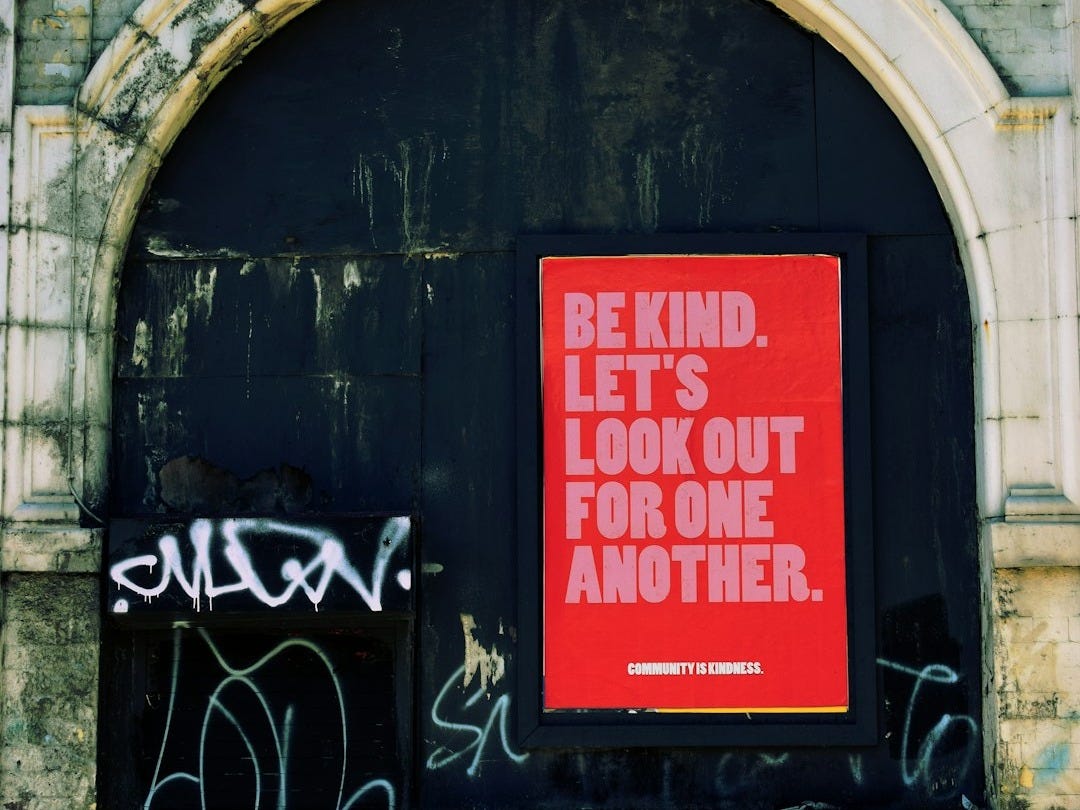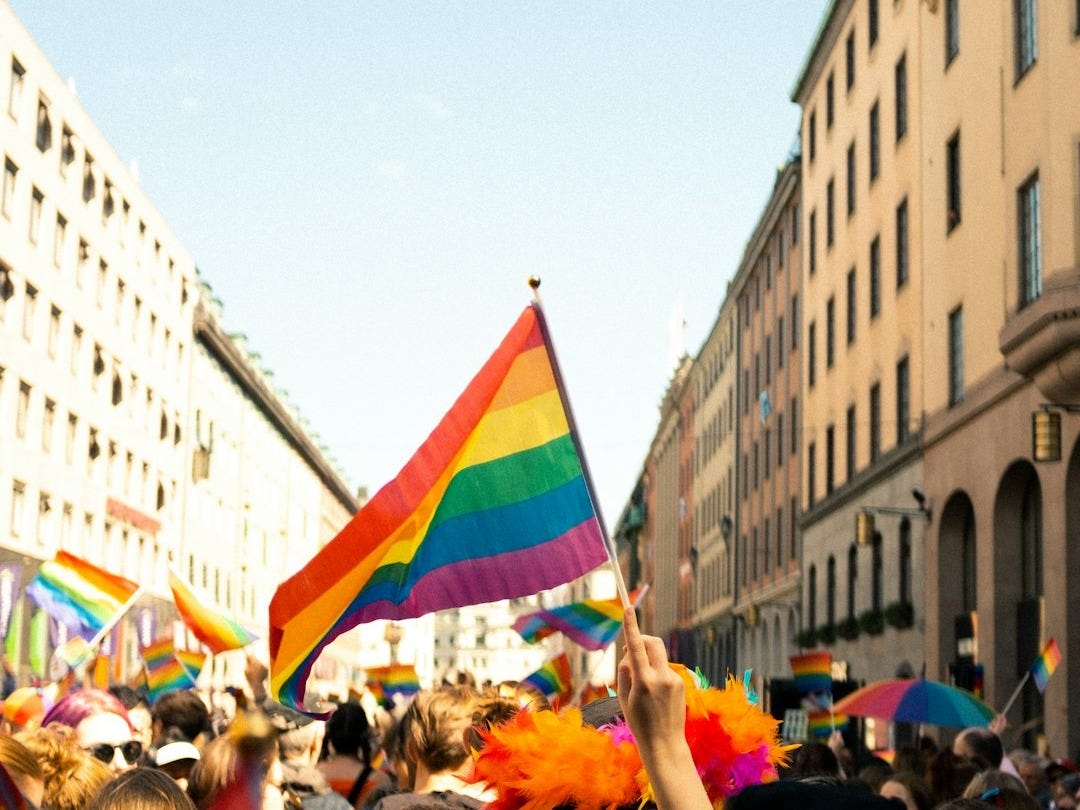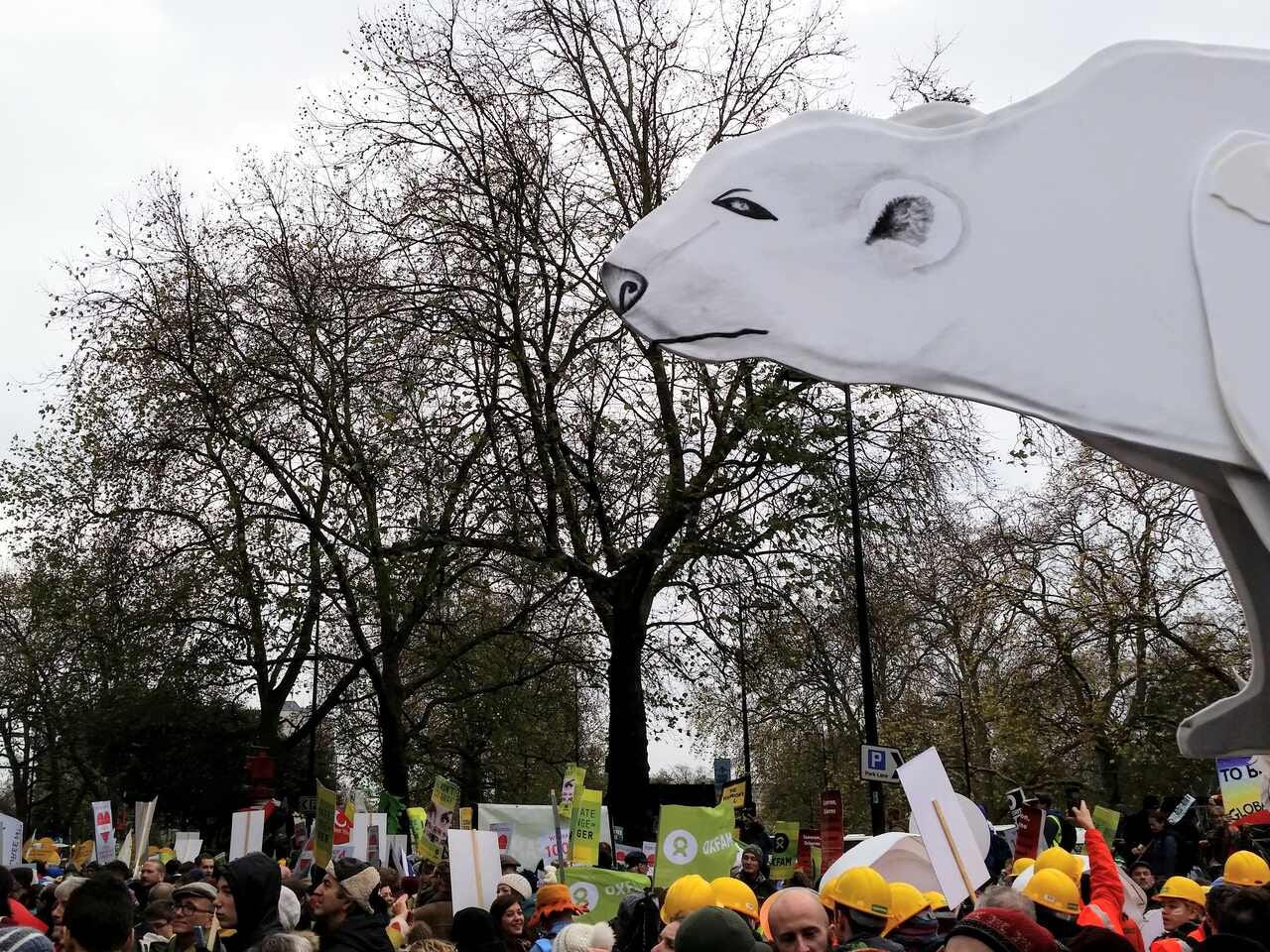June is Pride month and this weekend, we're celebrating in Blackpool. Pride has been on its feet in the UK since 1972, but LGBTQ+ liberation is far from the only social movement that's embraced the power of mass walking for change.

The UK’s queer community has been messy recently, fractured by a painful rift between trans and non-binary people fighting for legal rights, safety and recognition, and a reactionary rump of lesbians and gay men who want to pull up the ladder behind them.
Two things seem true to me. None of us are free until all of us can walk in peace. And every movement for social change is held back by infighting and partisan division. Those of us who work for progress are caught in this tension, trying to reconcile competing agendas towards shared goals, in the hope that we can find common ground.
This is also true of the right to roam. Walkers still have limited access to much of England's landscape, despite decades of persuasion, campaigning and direct action.
The path towards justice can be tortuous and winding, with many dead ends and setbacks. But revolutions always start with people walking together for what they believe in.
Kinder Scout

On 24 April 1932, several hundred young ramblers from Manchester and Sheffield marched en masse to the summit of Kinder Scout. Spurred to fight against the finest stretches of moorland being closed to public access, they walked together from the recreation ground in the village of Hayfield to the highest plateau of the Peak District.
At the summit, there were speeches and celebrations. Despite calls from organisers for the walk to be peaceful, there were scuffles with gamekeepers and subsequent arrests. But the publicity that followed added to a movement for change which overturned decades of public exclusion from the land by wealthy landowners and aristocrats. Eventually, in 1949, an act of parliament instituted the nation's network of National Parks.
The Kinder Scout Mass Trespass is now viewed as an iconic moment in the history of walking, and both the Peak District National Park and the Ramblers incorporate the event into their official histories. But it's easy to overlook how controversial the mass trespass was at the time.
The organiser of the event, 20-year-old Benny Rothman, was a committed communist and the secretary of the British Workers’ Sports Federation. The crowd drew large numbers from the Young Communist League. The walkers weren't just demanding access to land; they wanted cheap public transport, at cost refreshment facilities, an end to war preparations in rambling organisations, and the overturning of a wide range of restrictions on public gatherings. And they were willing to break the law to achieve their aims. The Kinder Scout Mass Protest was a revolutionary act of collective civil disobedience.
More conservative groups of walkers, like the Manchester Ramblers Federation, feared that the radical nature of trespass would alienate landowners and politicians whose cooperation was essential in creating legislative change. It was only when harsh prison sentences were handed down that public sympathy for the trespassers began to grow.
Almost a century on from the events of Kinder Scout, many of the walkers’ demands remain unmet. Much of England’s moorland is open to walkers, but as the recent battle over wild camping on Dartmoor has shown, some landowners continue to want to restrict rights.
Just 11% of England's countryside is open to the public, and wild camping is severely restricted. In contrast, Scotland instituted its right to roam two decades ago.
The fight for access to nature is far from over.
Trespassing

A warning sign that says “trespassers will be prosecuted” is a lie. Merely existing on land isn't a criminal offence, but a dispute between a walker and a landowner. Theoretically, trespassers can be taken to civil court, but a landowner would have to know who you are and could only claim against you for damage you have caused.
So in practice, much trespass goes unnoticed. Away from sensitive and restricted sites like military bases, the countryside can be a place of quiet enjoyment. If trespassers avoid domestic property and gardens, stick to field edges, respect livestock and leave no trace, they're unlikely to run into difficulties. But many of us are unhappy at the idea of walking on legally uncertain ground.
That's where the right to roam comes in. Scotland's model is one that England and Wales could follow, as it balances rights and responsibilities for both landowners and walkers. The Scottish Outdoor Access Code provides much needed clarity, and following it guarantees that responsible walkers and campers in Scotland are not trespassing.
Deepening a relationship with nature shouldn't have to feel like an illicit affair. But in much of England and Wales, the fear of trespass looms over us. Rights of way allow us to walk along a footpath, but not to stop. Crossing a field to sit under a tree can place us in uncertain territory. Wonderful, inspiring and transformative encounters with the living world are too often on the wrong side of the law.
Equality of access

Across Great Britain as a whole, 6.3 million people do not have access to a green space, like a public park, within a 10-minute walk of their home.
Repeated surveys have shown that people with low incomes, lower levels of education and who are not employed are less likely to spend time in nature than others. The most deprived parts of the country are among the least green, and with limited car ownership, opportunities to get out into the countryside are hampered by overpriced and unreliable public transport. 295 British neighbourhoods, home to 440,000 people, are effectively grey deserts, with no trees or accessible green space at all.
A 2020 study for the National Trust found that Black and Asian people are 60 percent less likely than white people to visit green spaces. Older people and those with long-term conditions face additional barriers to spending time outdoors. Many queer couples live in fear of holding hands while walking. For so many reasons, our freedom to exist in places we love remains profoundly unequal.
Almost a century ago, the systemic challenges of poverty, urbanism and nature deprivation motivated the Kinder Scout trespassers to climb to the top of a hill. We've undoubtedly made some progress since then, but we have a very long way to go.
Marching for change
I’m not much of a protester. I find large crowds overwhelming, and if I am separated from the people I know, I can struggle to identify familiar faces. In my life, I’ve been on a handful of Pride and climate change marches. But I am full of admiration for anyone who gets to their feet for a progressive cause they are committed to.
Being part of any mass movement can be hard. Just like in the LGBTQ+ community right now, there always seem to be competing priorities, irreconcilable demands and factional fighting. Because while we might want to end up in broadly the same place, we each have different starting points. Our life experiences shape our priorities and values, and our passions for change are as individual as we are. Finding common ground can be difficult, but working towards social justice always starts with a willingness to listen and learn.
“What do we want?” “Gradual change!” “When do we want it?” “In the fullness of time!” It’s an old joke about English protesting that cuts a little too close to the bone. Personally, I struggle with the bleakness that swept through much of the environmental movement over the past decade, as people grappled with their fear of social collapse. But I’m an optimist at heart, and a pragmatist, too. I believe in human ingenuity and resilience. I want to work for positive change and I continue to search for possibility even in the face of insurmountable odds.
Whether it’s a Pride march, a protest for trans rights, or a campaign for access to nature, I can find my place and play my part in the causes that matter to me. And I can recognise that the actions taken by others - even those that I find uncomfortable or consider unwise - can be the turning point on the path towards justice.
Walking together

Benny Rothman and his crowd of working-class ramblers were not the first to approach the inaccessible heights of Kinder Scout. In the decades before, gamekeepers drove away countless picnickers and hikers who dared to trespass into forbidden territory. In the end, it was a mass movement of people walking together who made the difference.
Today, our collective visibility matters. Public footpaths stay open and clear because people walk them regularly. Parks in cities receive investment when decision makers know they are well used. The diversity of queer lives is celebrated when we take to the streets in Pride marches.
We are stronger when we walk together. So, we should never forget to ask: “Who is missing?”
If we only see faces that look like ours when we walk, it’s time to ask ourselves deeper questions about equality of access. Whether we’re on city streets or country paths, acknowledging our privilege shouldn’t stop us enjoying the things we love. But it should spur us to work for a world which is fairer, and make space for the people we are yet to know.
So get to your feet. Join a march. Walk towards a better world.





It's shocking the percentage of people who have no access to green spaces. "Who is missing?" is such a great question!
'Today, our collective visibility matters. Public footpaths stay open and clear because people walk them regularly. Parks in cities receive investment when decision makers know they are well used. The diversity of queer lives is celebrated when we take to the streets in Pride marches.'
I love the intersectionality of this post. Big love!
Walking with kindness Dru. This really connected for me, especially as I often lean more into the activist side of walking for change. Your Substack reminded me that there can be just as much strength in the quiet softness. Walking is motion. So long as we aren’t stagnant, we’re growing.